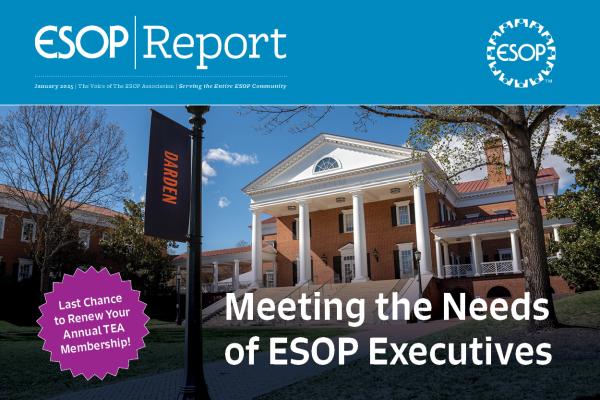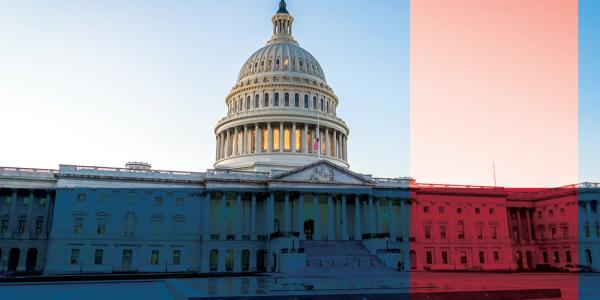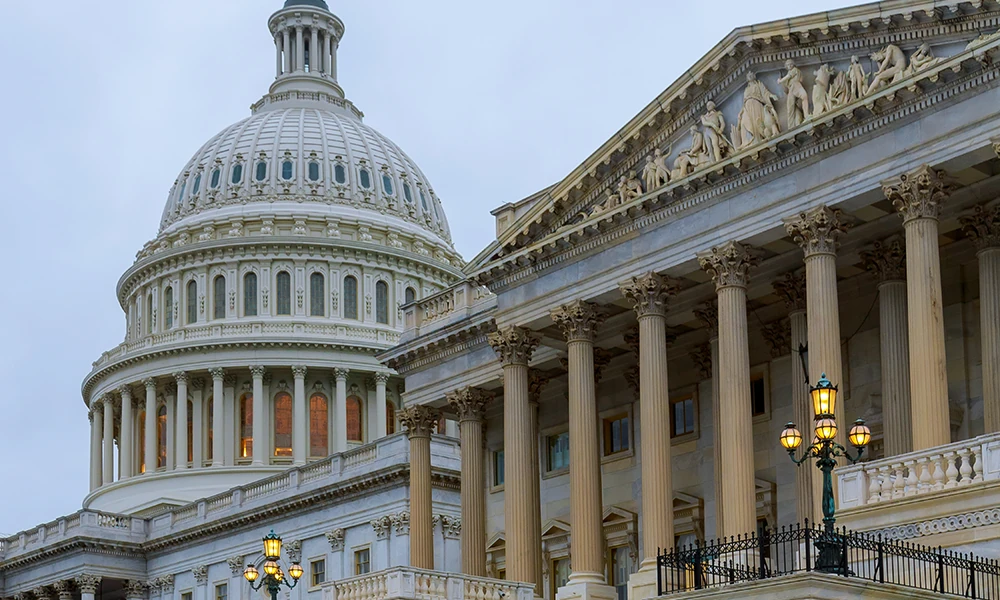On March 11, Lori Chavez-DeRemer was officially sworn in as Secretary of Labor. The ESOP Association strongly supported Secretary Chavez-DeRemer’s confirmation because she has a deep understanding of ESOP businesses and the transformative power of employee ownership. She knows it’s possible to be both pro-business and pro-worker, and that ESOPs embody the best of both those worlds.
On March 12, the U.S. Senate confirmed Keith Sonderling to serve as Deputy Secretary of Labor, the #2 position at the DOL, which leaves Daniel Aronowitz’s nomination to lead EBSA as the final senior appointee responsible for ESOP issues remaining to be confirmed. The ESOP Association is hopeful the Senate takes up Mr. Aronowitz’s nomination soon, as there is much work to do if we are to reverse decades of harm against ESOPs through mismanagement, harassment, and a fundamental misunderstanding of the role of ESOP Trustees and valuation professionals.
While it may take some time for the DOL to move forward on our core priorities as the new leadership team settles in, there are several actions the Department can take in the near term that would have an almost immediate positive impact for ESOPs.
Terminating Common Interest Agreements
In November, U.S. Representative Virginia Foxx (NC), then-Chair of the House Education & the Workforce Committee, shed light on highly disturbing reports that the DOL was sharing privileged and confidential information with plaintiffs’ attorneys pursuing class action lawsuits against plan fiduciaries. Setting aside questions of the legality of common interest agreements (there are certainly due process and privacy concerns, and one has already been struck down in federal court), there is absolutely no question of the great potential for abuse of power. Foxx called for an investigation into common interest agreements by the DOL’s Inspector General, and on January 23 new Education & the Workforce Chair Tim Walberg (MI) renewed the Committee’s request for an investigation.
Although Congress can provide a permanent legislative fix, the DOL has the authority to end this practice on its own. And it should. As Chairman Walberg noted in his letter to Inspector General Larry Turner, common interest agreements are “a blatant abuse of the law,” and that “the plan sponsor community was unaware that EBSA was commonly feeding employee benefit plan information gathered during investigations to plaintiff law firms.” Common interest agreements make a mockery of the judicial process by denying plan sponsors a fair trial, and should be ended immediately.
Adequate Consideration
Although President Trump withdrew the Biden Administration’s draft regulations on adequate consideration and the safe harbor provision, the DOL is still required to undertake formal notice and comment rulemaking pursuant to the WORK Act. This will be a process, since the withdrawn rules mean the DOL will be starting with a clean slate, as Secretary Chavez-DeRemer and Daniel Aronowitz (when confirmed as head of EBSA) will certainly have a different outlook than the career EBSA lawyers who wrote the original drafts.
However, the DOL can send a very strong message to ESOPs, potential ESOPs, and trustees by announcing that the Biden Administration’s withdrawn rules for adequate consideration and safe harbor do not carry any regulatory weight and should not be interpreted by any court as guidance or the views of DOL. Further, it would be useful if the Secretary would announce a timeline or initiative to produce a new adequate consideration proposed regulation with the benefit of the new administration’s viewpoint. An even stronger message would be to announce the safe harbor provisions are officially dead, as safe harbor wouldn’t need to exist if the adequate consideration regulation is fair and transparent to begin with. In fact, it seems the only beneficiaries of a safe harbor provision would be plaintiffs bar attorneys, who would have free rein to sue in any ESOP transaction that did not use safe harbor.
Looking a bit further down the road, when DOL and EBSA are ready to begin rulemaking on adequate consideration, there is already a powerful baseline from which they can work. The ESOP Association went to great lengths to draft a model regulation, with input from some of the most highly regarded experts in our industry. As we continue the quest for an adequate consideration rule that removes uncertainty, makes it easier and less costly to form new ESOPs, and includes strong protections for employee owners, we hope the DOL and EBSA use The ESOP Association’s model regulation as their starting point.
Ending the National Enforcement Project Against ESOPs
Another way the DOL can make an immediate impact is to end EBSA’s National Enforcement Project against ESOPs, which has been ongoing since 2005. To be clear, ESOPs, like all businesses, expect reasonable regulations and regulatory standards. In fact, we’ve been asking the DOL to do its job and properly regulate ESOPs for decades through an adequate consideration rule.
However, after almost 20 years, it’s become clear that a special enforcement project that adds unreasonable levels of scrutiny to ESOP transactions is more of a PR tactic than a regulatory one. By strongarming a disproportionate number of ESOPs into forced settlements, the DOL has been able to claim it was on the side of plan participants when the reality is many ESOPs simply could not afford the costs of a long legal battle. Ending the National Enforcement Project and instead adopting a standard of litigating abusive cases would go a long way toward removing uncertainty for potential new ESOPs and their Trustees.
These are just a few examples of actions the DOL and EBSA can take that would begin to restore trust, or at least a mutual respect, between ESOPs, Trustees and professional service providers, and our industry’s chief regulator. And although the current political environment is quite turbulent, the support for ESOPs in Congress and the White House has not changed.
Removing uncertainty in ESOP regulations is the right thing to do, both economically and politically. With strong leadership at the DOL, we can begin to right many of the wrongs inflicted upon ESOPs and chart a new path for our future.







